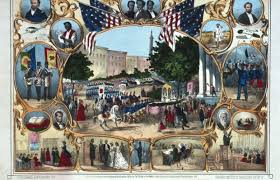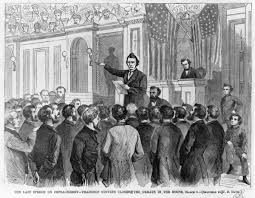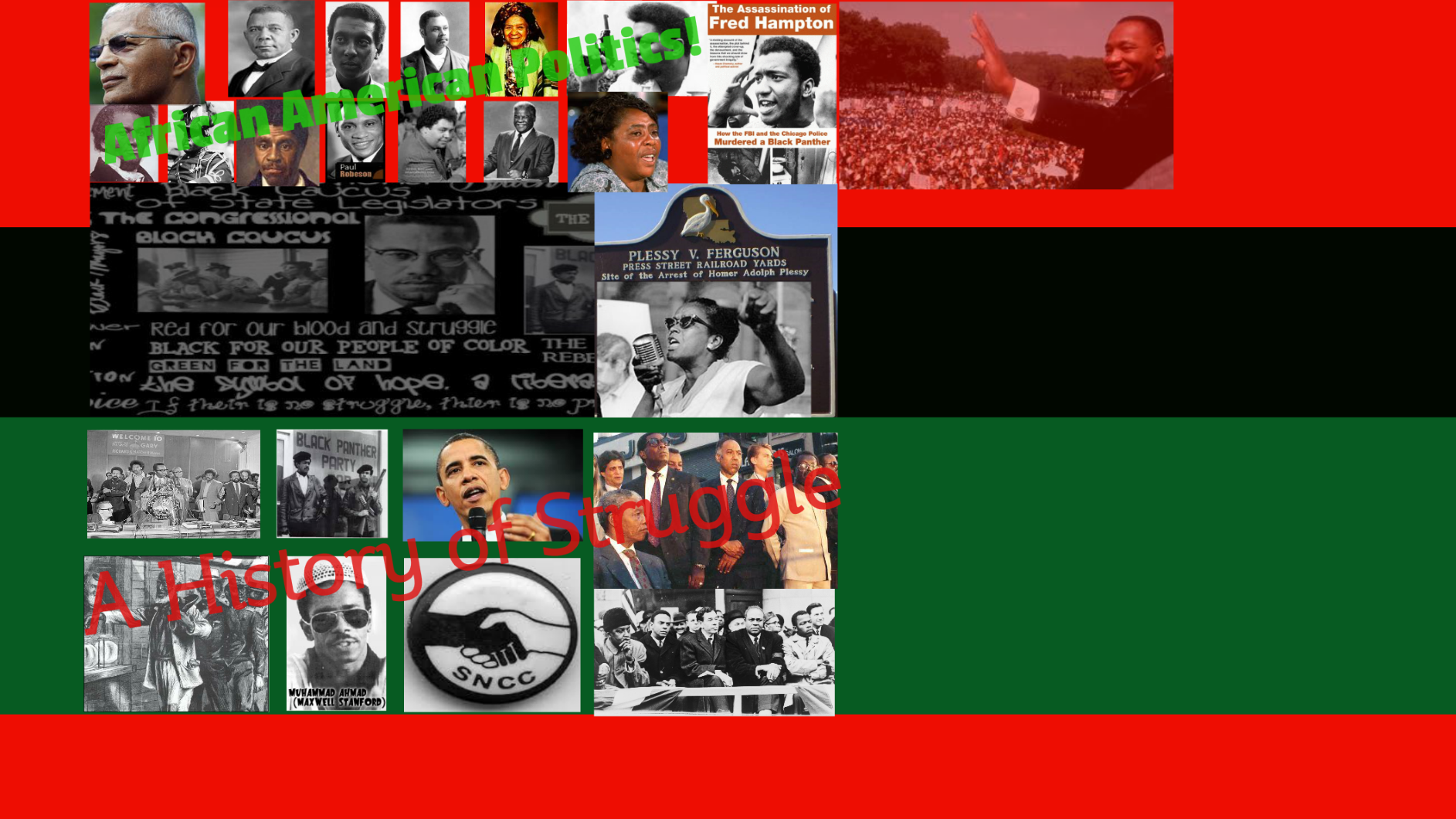Slave Rebellions to Barak Obama
A History of African American Political Struggle
African American history is a history rich with political struggle. Whether we study the early slave rebellions, the Civil War, #reconstruction, Post-Reconstruction, the Garvey Movement, the 1960s Civil Rights and Black Power movements, or the rise of Black elected officials up to, and including, the election of Barak Obama, African Americans have engaged in deliberate political action to advance their quality of life within the United States. In 2008, tens of millions of African Americans turned out in historic numbers to propel Barak Obama to the Democratic Party nomination and, ultimately, the Presidency of the United States. The turnout in that election was the culmination of a massive upswing in Black voting which began with the passage of the 1965 Voting Rights Act.
What Caused the Black Civil Rights Movement
AMAZON DEALS
Barak Obama Election –
Political Triumph in African American History
By the time of Obama’s re-election campaign in 2012, numerous states across the nation had moved to adopt laws that severely restrict voting rights. Many of these laws were targeted at African American voters. At the same time, Republicans in the US Congress, backed by right-wing white supporters (many aligned with the TEA Party) initiated a process to obstruct much of Barak Obama’s public policy agenda. The strategy was to undermine his Presidency, deny his legitimacy, and, ultimately roll back his achievements. This white, right-wing reaction did not succeed in denying Obama’s re-election, as US Senate Republican leader Mitch McConnell had pledged. However, by the time of the 2016 US Presidential election, this wave of reaction, combined with voter suppression tactics and foreign intelligence sabotage, did succeed in bringing to power the unpredictable and incendiary, Donald Trump.
Will African American History Repeat Itself?
Trump came to power with a promise to roll back all that Barak Obama had accomplished, beginning with a repeal of the Affordable Care Act, commonly known as Obama Care. As the year 2020 came to an end, it likewise became clear that Donald Trump also came to power with fascistic intentions. The year 2022 approached with the American body politic still unable to internalize the concept of fascism emerging within the United States. However, older African Americans still remember what it was like to be totally subjugated under an American Apartheid, or Jim Crow system.
White Fear as A Political Weapon
For decades, American electoral politics engaged approximately only half of American society. Tens of millions of Americans never bothered to register to vote. As the USA has become more and more diverse, a concern about increasing numbers of People of Color has developed into an outright fear among a majority of white Americans. Donald Trump, like George Wallace before him, is willing to tap into that fear and mold it into a political weapon. The openly blatant moves by Trump to delegitimize the votes of African American people have put the majority of white Americans once again on a collision course with African American history. The last two times this happened, there were primarily two main groups of people in the United States, white people and black people. The demographics have changed significantly since those earlier days of African American history.
Maintaining White Supremacy in America
In the minds of a majority of voting white Americans, the rapid growth of Latinos, Asian Americans, and other People of Color within the US population has made them envision the possibility of an America where white people are no longer the majority. The concept of a United States of America that is not ruled by white people is unacceptable in their thinking. Even though they know that Trump is evil and unstable, they also understand that his goal is to maintain white supremacy as the governing force in American society. By casting nearly 75 million votes for Donald Trump in the 2020 US Presidential election, the majority of voting white Americans have chosen to back a man who presided as an open bigot for four years.
What does this new American reality mean for the African American community and for the future of African American history in the US? Well, increasingly, it looks like a reality where the tens of millions of white people who follow Donald Trump are willing to declare any election won with Black or Brown votes to be null and void. Even worse, it appears to mean a reality where these tens of millions of white people will not hesitate to take up arms and use violence as a weapon to maintain white supremacy. These developments which are now being openly discussed in the mainstream media as a consequence of events that have unfolded following the 2020 US presidential election threaten to potentially usher in the most dangerous phase of the African American history of struggle for freedom and self-determination. The last such white backlash in African American history led to 75 years of racial subjugation for black people.
Post Reconstruction – African American Political Power Attacked
For Black voters, this rollback strategy is dangerously reminiscent of the Post Reconstruction era. It is like Deja Vu, all over again. Between 1864 and 1870, a vigorous debate waged within the US over the question of the black vote. Following the Civil War, the readmission of Southern states into the union was tied to the enfranchisement of African Americans. The 14th Amendment, which bestowed citizenship on African Americans, also dictated the terms for readmission of Southern states into the Union.
Three-fifths Compromise and Dred Scott Decision Overturned
Section 2 of the 14th Amendment overturned the provision in Article 1 of the US Constitution which had limited the counting of ex-slaves for congressional apportionment to three-fifths of a person. The counting of African Americans then added fifteen additional congressional seats to the House of Representatives. The 14th Amendment also overturned the infamous Dred Scott Decision of the US Supreme Court. African American political thought

Dred Scott
African American History – Struggle for the Right to Vote
14th and 15th Amendments to US Constitution
Because the Reconstruction Acts passed after the Civil War called for Black voting rights only in the South, there was great disparity and controversy within the US. Those Acts did not apply to the North, where 11 out of 21 states did not allow Blacks to vote in 1868. Further, the Border States, where a sizable chunk of the African American population resided, did not allow Blacks to vote either. Congress passed the 15th Amendment in 1869 to rectify the voting rights disparity. However, there was resistance to its ratification. It was then dictated by Congress to the Southern states that the condition for their readmission to the Union would be acceptance of both the 14th and 15th amendments.

African American Political Representation
Following the passage of the 14th and 15th Amendments, African American political representation in the South increased dramatically. Between 1870 and 1900, twenty-two African Americans served in the US Congress. And, in 1868, Oscar Dunn, an African American, was elected Lieutenant Governor of Louisiana. In the legislature of South Carolina, Blacks even outnumbered whites by 87 to 40.
Post Reconstruction White Backlash
This African American history is ripe with protests and a constant struggle for the enforcement of laws passed to enfranchise African Americans. After only a few short years of African American political representation, a vicious, violent backlash began. White supremacist groups like the Ku Klux Klan gained prominence, and many Whites refused to accept Blacks as their equal. In 1876, after three years of controversy, the US Senate refused to seat PBS Pinchback, an African American who had been Governor of Louisiana for a short while. Also in 1876, a mere six years after the ratification of the 15th Amendment, the US Supreme Court ruled that ‘the right of suffrage is not a necessary attribute of national citizenship. The next year, the infamous Hayes-Tilden Compromise of 1877 led to the revocation of presidential authority to use federal troops to guarantee fair elections. By 1890, Mississippi had convened the first of the constitutional conventions which would sweep the South and institutionalize the racial cleansing of African Americans from the political arena.
The Last African American Left
In an 1899 speech to the US House of Representatives, North Carolina congressman George White said, “our ratio of representation is poor…We have kept quiet while numerically and justly we are entitled to fifty-one members of this House, and I am the only one left. In his farewell speech, White prophetically said, ‘this, Mr. Chairman, is perhaps the Negro’s temporary farewell to the American Congress; but let me say, phoenix-like, he will rise up some day and come again. These parting words are on behalf of an outraged, heart-broken, bruised, and bleeding, but God-fearing people, faithful, industrious, loyal people – rising people, full of potential force.’
African American culture and politics in the 1920s
After 72 years
The Phoenix Rises
After White’s departure, it would take 72 years for African American voters in the South to elect a candidate of their choice to the US Congress. It would take another twenty-two years, two amendments to the Voting Rights Act, vigorous litigation, and federal government intervention before the opportunity to elect a congressional representative became a reality in most of the Southern states. From the time that African Americans were first granted the right to vote up to the present, there has been consistent resistance to African American voting rights, especially in the South.
The Second Reconstruction in African American History
The long struggle from Post-Reconstruction to the Civil Rights Movement culminated in the passage of the 1965 Voting Rights Act. That Act was necessary so that African Americans could realize rights that had been granted to them by the passage of the Fifteenth Amendment, some 95 years earlier.
The Voting Rights Act Amendments
It would take further amendment of the Voting Rights Act in 1982 for African Americans in the South to elect candidates of their choice to office in significant numbers. The VRA had to be amended by Congress again in 2006, following a wave of litigation challenging the election of these new officeholders. In 2015, following the election and re-election of Barak Obama, it is necessary to amend the Voting Rights Act once again because issues long fought over have still not been put to rest. Dive in!
References:
African American Struggle, Politics and History
African American Struggle
Current Struggles of African Americans
Robert F. Williams, “Black Power,” and the Roots of the African …
and the Roots of the African. American Freedom Struggle. Timothy B. Tyson. “The childhood of Southerners, white and colored,” Lillian Smith wrote in 1949,.
African American World. Timeline | PBS
For over 500 years, people of African descent have shaped the course of American history. From the fight against slavery to the March on Washington, relive the …
Fath Davis Ruffins – | National Museum of American History
African American history and culture; Ethnicity and commercial imagery … “Sites of Memory, Sites of Struggle: The ‘Materials’ of History” in Major Problems in African American … Museums and Communities: The Politics of Public Culture.
AFRICAN-AMERICAN STUDIES – University of Washington
History, culture, religion, institutions, politics, economics, arts, and psychology of … AFRAM 150 Introduction to African American History (5) I&S … of urbanization and subsequent depression, desegregation, and the struggle for civil rights.
Includes the Timeline of African American History, 1852-1925. … After Slavery: Race, Labor and Politics in the Post-Emancipation Carolinas: This web site is an …
As historians discover new primary sources, uncover new angles of African …. the post-war African American struggle for freedom, this exercise will engage them …
Key moments in the civil rights movement, including Supreme Court cases, … black nationalist and founder of the Organization of Afro-American Unity is shot to …
African American World: Timeline — Civil Rights Era – PBS
For the first time since Reconstruction, the federal government uses the military to uphold African Americans’ civil rights, as soldiers escort nine African Americans..
Documenting the American South – The University of North Carolina …
The voices of the civil rights movement swelled into a wave of protests that profoundly changed America. This collection of interviews seeks to make this massive …





